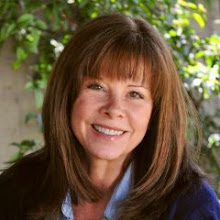O, cut my lace in sunder, that my pent heart
May have some scope to beat....Richard III Act IV, Scene I
In addition to gathering critical acclaim, the AMC series "Mad Men" is introducing a new generation of women, many of whom loathe the moniker feminist, to the lives of women in another time.
And as "Mad Men" is to advertising, so Janice "Jenny" Van Horne's memoir, "A Complicated Marriage" (Counterpoint Books), is to the mid-century era of modern American art.
I am crazy about this book. What young person leaping into adulthood doesn't wonder Who am I? and What's going to happen to me? Jenny Van Horne took me on a adventure that recalled my own questions and my own search. I was with her all the way through both the pain and exuberance of life in the city, in the country and coast to coast.
In compelling fashion, Van Horne takes her readers by the hand and, beginning in 1955, leads them decade through decade on a fascinating odyssey of time, place, culture and a marriage as modern as the art on the walls.
Jenny arrives in Manhattan as a Bennington graduate and at a cocktail party meets Clement Greenberg, the man who would become her partner and husband — and pariah to her anti-Semitic family.
Greenberg, an art critic many considered the best of his generation and perhaps of all time, was the man behind the artists who drove American modern art on to the world stage. These artists exploded like rockets into the stratosphere, and holding tight to their tails were their wives.
Quiet women at the ready to prop up their geniuses as the Scotch and vodka flowed and self-importance rattled forth. One of these wives took to humming as the men jabbered. Was she quelling her own madness?
In an ironic turn, many of these artists' wives have found their power as artists' widows. They are now the guards at the gate and the curators of the work. Now they can be heard. Now they can be respected.
Van Horne quietly slips into the milieus of Greenwich Village, East Hampton and Provincetown. Jammed into the smoky atmosphere of Pollock, de Kooning and Kline, she paints delicious verbal pictures for us. We join her in tasting, hearing and feeling the silent desperation of a woman in search of purpose.
Once engaged, Clem informs her they'll marry "as long as nothing changes" and announces they'll enjoy an "open marriage." Of course, everything changes, and the concept of an open marriage is as foreign to this young wife as are the dazzling paint splashes of Jackson Pollock. Small wonder that "Hey there, you with the stars in your eyes..." became their song.
At acting classes at the HB Studio, then under the prickly scrutiny of Lee Strasberg at the Actors Studio, Jenny Van Horne finds her voice. As ensemble theatre takes hold, with actors and audience grappling in drug-induced protest against the war in Vietnam, she finds place. Change happens. Clem introduces the freedom of that open marriage and Jenny follows with her own experiences and unearths self.
Jenny Van Horne's roles as wife, mother, actor, singer, writer, editor and witness transport us from the fifties through the nineties and into a new millennium, where introspection and forgiveness are offered.
Van Horne and Greenberg marry, divorce and marry again. Whatever drew them together in 1955 anchors the twosome to the end. It can be a tricky business to grow as an individual within the institution of marriage and I can't say this book convinced me that an open marriage is the ticket. However, I was left with the sense that Jenny and Clem knew themselves, respected and accepted each other and nurtured a deep affection...over a very long time.
On completion of this vivid read I wondered, "What now, Jenny Van Horne?" because I wanted more. More words, more pages, more people....What now, Jenny Van Horne?
She may well whisper, "Live your own life." And this too is the signature of a good book.












